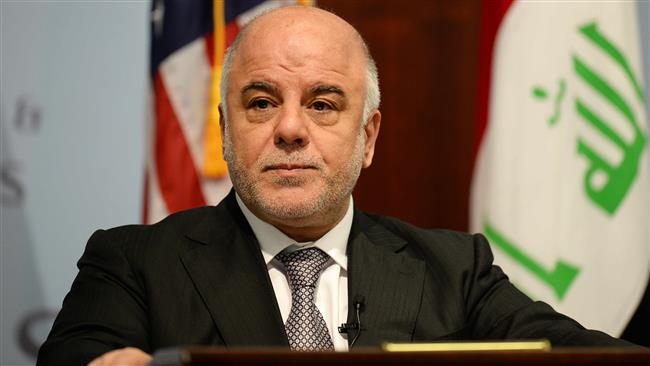Iraq steps up anti-IS coordination with Iran, Syria, Russia
Baghdad said it was stepping up cooperation with Moscow because of reports that many Russians had joined the ranks of IS

A file photo of Iraq's Prime Minister Haider al-Abadi (AFP)
Published date: 27 September 2015 13:25 BST
|
Last update: 9 years 1 month ago
Iraq has agreed to set up a cell increasing intelligence coordination with Russia, Syria and Iran in the fight against the Islamic State group, a government spokesman said on Sunday.
"It's a committee coordinating between the four countries, with representatives of each country, in the field of military intelligence and aimed at sharing and analysing information," Saad al-Hadithi, a spokesman for Prime Minister Haider al-Abadi's office, told AFP.
He said the cell would focus on "monitoring the movements of terrorists... and degrading their capacity."
A statement from Iraq's Joint Operations Command said the deal with Moscow comes amid "growing concern over the presence of thousands of Russian terrorists engaged in criminal acts with Daesh (IS)."
Hadithi would not say whether the new cell had already begun its work.
The move comes as Moscow is boosting its military presence in neighbouring Syria, deploying more troops and warplanes to an air base along with new arms deliveries to President Bashar al-Assad's government, a longstanding ally.
The United States has a $500 mn programme to train and equip vetted "moderates" recruited from among the rebels fighting Assad, but it has faced repeated setbacks.
Washington's strategy in Iraq, built on an air campaign and the deployment of several thousand military trainers and advisers, has also come under increasing fire as failing to reach the promised results.
Moscow has sold fighter jets and weaponry to Iraq but has taken the back seat as Iran and the US-led coalition - which also includes France and Britain - often competed to be Baghdad's top partner in the war against IS.
Western powers have recently softened their stance categorically rejecting a role for Assad in any political solution to the conflict in Syria.
Abadi's spokesman said enhanced intelligence cooperation would positively affect operations against IS, which proclaimed a "caliphate" straddling Syria and Iraq last year.
"Having a broader base of intelligence thanks to cooperation with these three countries as well as with the coalition will give our security forces more opportunities to achieve victory in the war against terrorism," Hadithi said.
New MEE newsletter: Jerusalem Dispatch
Sign up to get the latest insights and analysis on Israel-Palestine, alongside Turkey Unpacked and other MEE newsletters
Middle East Eye delivers independent and unrivalled coverage and analysis of the Middle East, North Africa and beyond. To learn more about republishing this content and the associated fees, please fill out this form. More about MEE can be found here.

